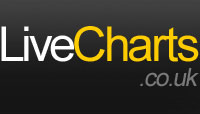Taxes And Costs Associated With Share Trading Profits
If your money making method of preference is self-employment, experiencing profits can be a thrilling experience as you were unsure of the outcome.
While this is one of the benefits of earning a living being self-employed, one of the biggest woes is the taxes and levies involved. This can affect your financial stability as sometimes you may fail to account for these deductions which can affect your budget and leave you in a financial muddle. Share trading, being another effective self-employment method is also susceptible to various taxes and levies. When planning your budget and accounts, make sure you include these costs as well.
Similar to a traditional day job, profits from share trading are liable to income tax. Income tax in the UK progressively gets higher in percentage depending on the amount you earn. The income tax in the UK maybe up to 50% depending on the profits made from share trading (at time of writing if profits are over 150,000 pounds).
Another levy that is specific to share trading and a few other types of money making methods is capital gains tax. This is a tax imposed on the profits derived from selling your shares. If a loss has been made from your shares, it can be compensated from your profits. There is also a stamp duty payable for all transactions which amounts to a 0.05% fee.
Thus, successful share trading is having a relatively large income after the aforementioned taxes have been deducted. If you are looking to cut your losses, you may evade these taxes by investing in spread betting instead which is based on a similar concept but is not entitled to capital gains tax. Another way of avoiding capital gains tax is by using an individual savings account; however this is only appropriate in situations where your share trading is primarily done to save funds.
Go Back to Share Dealing Main Page »

